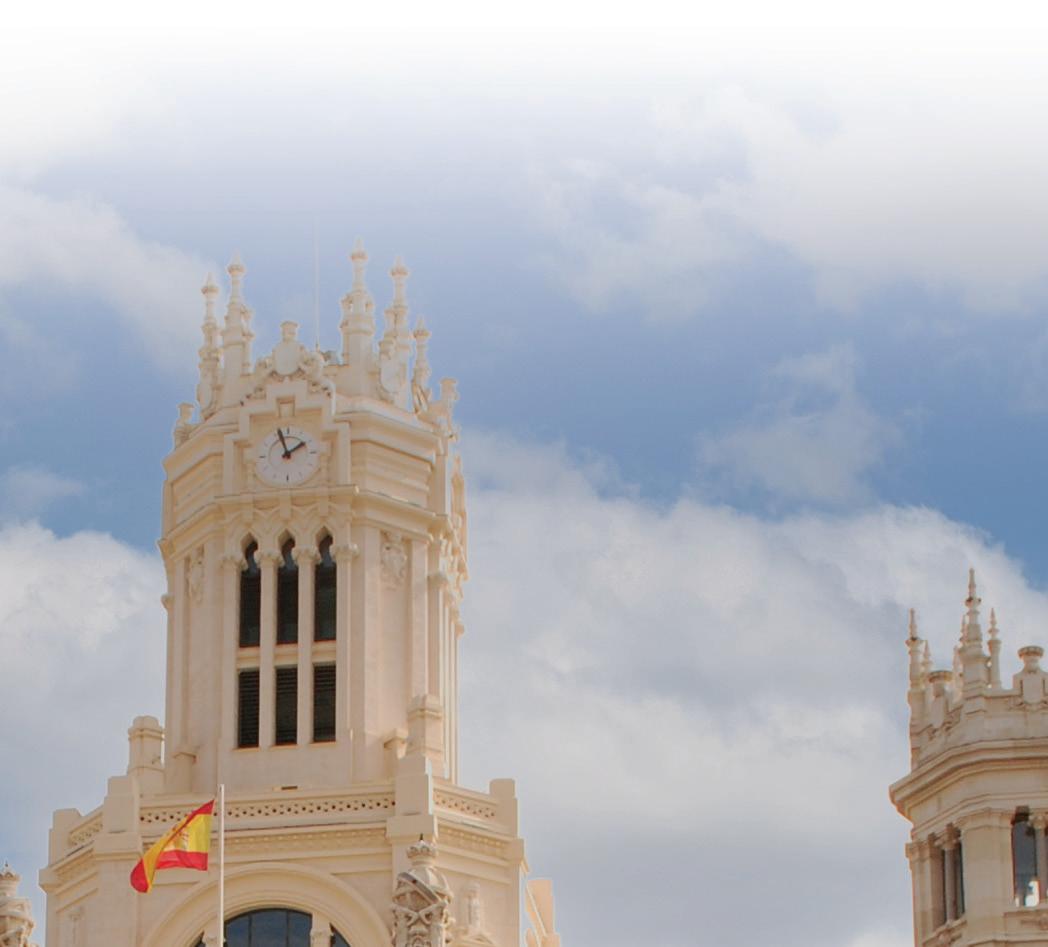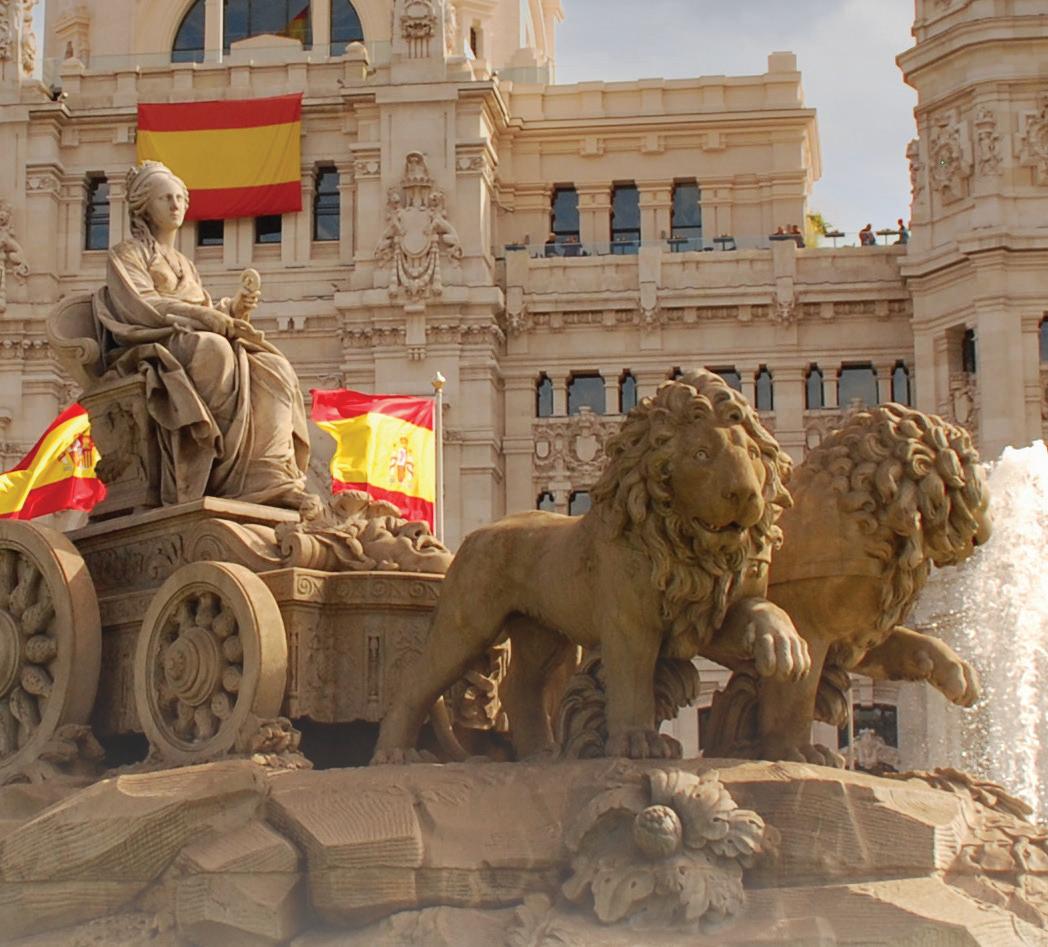
11 minute read
Regulation; innovation
occasional visitors, to people who like to have a modest punt once they’re comfortable. But – oh no – 1994 rules mean you can’t have alcohol on the gaming floor (as anyone who worked as a shift manager around this period will have stated at least 100 times every Saturday night). Those of us working in casinos back then will also remember they weren’t the most welcoming of places, with thick smoke (not anymore!), low ceilings and usually a tiny bar, purely as a service.
The 1994 casino is a bit limited in terms of gaming options, as well. Just the two slots, which if we’re being honest were largely run back then as a mysterious box that was a pain in the backside to empty and count. No electronic roulette – the Casinosaurus doubtless does not approve anyway – so really it’s just tables. You’d just about got the option to offer Casino Stud Poker back then (and “Super Pan 9” – great) by 1994. Proper side bets were a gleam in someone’s eye.
Side bets are in fact a divisive issue, and I can see the argument for non-progressive bets both ways. Anyone can point to the revenue generated by them, but I don’t think many have assessed the impact of both the frustration caused by a slower game, and danger of rapid bankroll exhaustion. One thing’s for certain in my mind, though, progressive side bets are a must. They add a different dimension to casino gambling, where you can genuinely turn a £100 ($135.38) buy-in into life-changing money in one shot. Without them there’s an erosion of the casino experience for some people.
The challenges don’t stop there, mind. You can’t have debit cards, just three cheques per person, per day, backed up by a “Cheque Guarantee Card” (ask your parents, kids) unless you set up a complicated facility. ATMs weren’t permitted, and by all means stick your smiling friendly faced receptionist out there on reception, but almost nobody had door security – I’m sure it’ll be okay. That’ll do nicely on a lively Friday night… And one more thing – you’ll be needing to close at 4am, and 2am on a Saturday night, just when it’s getting fun.
Even staffing was a ton easier back then, with far superior options for the skilled dealer abroad, when being a UK licensed casino professional meant something overseas. If you operate with the same bloated 1994 rota and super low gaming minimums to match, you’re just not going to make enough money, with staff far more expensive overall today. Oh and no tips to supplement the salary. In fact running a 2021 casino on a 1994 roster, with tipless wages adjusted to the point where you could actually get enough staff, bankrupts you before you’ve been trading a month.
You’d need to adopt the old policy of banning fraternisation with customers, too – back then as a dealer you could get fired for being in a photo with a member of your casino. That works a lot better when you have a very small number of respectable players (respectable in terms of spend level, not always in terms of respectable individuals) than when you’re trying to bring new trade through the doors.
In short, if you tried to operate the same way today as you did in 1994, you’d be dead in the water. You can’t afford the staff you’d have had back then, your ancillary income is devastated, and a lump of your primary income is a victim of modern AML regulations. Online gaming soaks up some portion of your core market – the sofa can be more tempting as a gambling location than having to get up and put actual clothes on.
Oh, and if you thought you were going to turn a blind eye to problem gambling issues, which operators might have done back then to a small extent (and there weren’t anything like the same regulations anyway), the combination of the National Self Exclusion Scheme and stringent penalties for not doing the right thing will see you in big trouble.
It’s easy to remember the golden days and for our Jurassic joker to pooh-pooh the efforts of managers since then, but the truth is the market and the operating environment has changed. In a dynamic world, adapting to change is key, and bleating that everything’s worse than it was when Casinosaurus roamed the pit just evokes thoughts of oncoming asteroids and imminent fossilisation. There is more than one way to both skin a cat and run a casino – not necessarily complementary skills – but harking back to 27 years ago doesn’t form part of any method with a chance of success.

Paul Sculpher



A MESSY START, BUT A START NONETHELESS
Gambling Insider contributor and Founder of Gaming in Holland Willem van Oort discusses the convoluted launch of the regulated Dutch online gaming market. After many years of political wrangling, it opened on 1 October, but not without some unexpected and perhaps unwelcome last-minute surprises...

LAST-MINUTE POLICY U-TURN
Only 10 days before the opening of the Dutch regulated market, the Netherlands Gambling Authority announced a set of new measures to force yet unlicensed operators to shut down their offering to Dutch consumers. Starting 1 November, 2021, the Netherlands Gambling Authority will implement new prioritisation criteria for deciding whether to take enforcement action against a specific operator. This decision will (generally) be based on the following four criteria: 1. The current number of Dutch players/customers 2. The harmfulness of the illegal offering 3. The extent to which the illegal offering (successfully) competes with legal alternatives 4. The extent to which the illegal offering is actively targeting Dutch consumers
Specifically, this means online operators with a large customer base in the Netherlands will henceforth be first in line for enforcement action. The Dutch regulator also announced higher, more impactful fines, starting at 4% of turnover achieved in the Netherlands. This new enforcement policy was drawn up in response to the new enforcement directive sent by Minister Sander Dekker for Legal Protection to the Dutch Lower House a week prior, the aim of which was to force
existing Dutch online players to switch to legal alternatives available from 1 October. Dekker’s enforcement directive represented a sudden and unexpected break with previous policy, which prioritised eventual market channelisation (to which operators currently subject to the cooling-off period were expected to eventually contribute) over providing immediate market exclusivity to fully licensed operators.
TEMPORARY MARKET DEPARTURES
As a result of the Netherlands Gambling Authority’s new enforcement policy, major international operators that were found to have illegally targeted the Dutch market in the past, such as Kindred Group, Betsson, Entain and LeoVegas, announced their temporary withdrawal from the Dutch market; not to jeopardise their prospects of a future remote licence.
For some of these operators, the decision to temporarily withdraw will have a major short-term financial impact. In a conference call to investors, Kindred announced that barring Dutch customers from its offer would negatively impact EBITDA by approximately £12m ($16.2m) each month, or, in other words, c. 50% of group EBITDA (2020). Betsson is estimated to take a lesser but still very significant 27% hit to total operating income.
NEW LICENSEES
Meanwhile, on 29 September, the Netherlands Gambling Authority announced the first 10 remote licensees (out of a total of 29 initial applications).
The following 10 companies were the first to be awarded an online licence: 1. Betent BV: An online spin-off of the Casino City gaming hall chain, which operates several land-based casinos in the Amsterdam area 2. Bingoal Nederland BV: An established Belgian provider of betting and casino games 3. FPO Nederland BV: Fair Play Online is a subsidiary of the Janshen-Hahnraths Group, which is primarily known for its Fair Play land-based casino chain 4. Hillside (New Media Malta) Plc: AKA Bet365 5. Holland Casino NV: State-owned Holland Casino is currently the only legal provider of (land-based) casino table games in the Netherlands 6. LiveScore Malta Ltd: A well-known sports media company, LiveScore also provides sports betting under its LiveScore Bet brand 7. NSUS Malta Ltd: Owner of the GGPoker brand 8. Play North Ltd: A small casino operator based in Estland and Malta, which currently operates Pikakasino and Rocket Casino 9. Tombola Ltd: The UK’s largest provider of online bingo games
10.TOTO Online BV: TOTO is part of the Netherlands’ national lottery, Nederlandse Loterij, and current sports betting monopolist in the country
Notable first-round absences: • JVH gaming: Owner of the land-based Jack’s Casino chain • Novamedia: Owner of the Postcode Lotteries format and largest charity lottery operator in the Netherlands • ZEturf: Current horseracing monopolist (It is widely expected, however, that several other licensees will be announced in the next two to three weeks – at the time of writing).
TECHNICAL OUTAGES AND LAUNCH DELAYS
As the regulated online market opened on Friday 1 October, the Dutch national player exclusion register (CRUKS) experienced a series of malfunctions, making it impossible for new players to register and already registered players to log on with licensed operators. These problems persisted throughout the weekend, causing several newly licensed operators to postpone their launch until the subsequent Monday.
On Saturday 2 October, only TOTO Casino, BetCity.nl, and GGPoker managed to open their (virtual) doors. Holland Casino, Fair Play Online, and Batavia Casino (Play North) only launched on Monday 4 October. The remaining licensees, Bet365, Bingoal, LiveScore Bet, and Tombola were expected to open by the middle of October.
FUTURE ADVERTISING WOES?
Just two weeks before the regulated Dutch online market opened, five Dutch incumbent gambling operators (Holland Casino, Janshen-Hahnraths Group, JVH gaming, Nederlandse Loterij, and ZEbet) founded a new online trade association, Vergunde Nederlandse Online Kansspelaanbieders (“Licensed Dutch Online Gaming Operators” – VNLOK).
VNLOK’s first public initiative was the launch of a new voluntary advertising code, the Reclamecode Kansspelen (“Advertising Code Games of Chance”), which was supposed to enter into force on 1 October. However, these hopes were dashed when leading Dutch consumer protection organisation Consumentenbond blocked the proposals, claiming that the protections offered by the new advertising code were “far too weak” and hardly (if at all) exceeding the legally mandated minimum.
Consumentenbond further claimed that VNLOK showed little inclination to compromise and further threatened to lobby for a total online gambling advertising ban, if its demands for additional restrictions were not met. Meanwhile, the CEOs of 14 prominent charity organisations (and charity lottery beneficiaries) published an open letter in a Dutch national newspaper, warning that any future gambling advertising restrictions (which they deem unavoidable) should not impact the Dutch lottery sector.
Based on experiences from other European jurisdictions that instituted (near) total advertising bans, we know that such advertising restrictions primarily benefit incumbent operators. Despite their apparent failure to introduce a sector-wide advertising code, the major Dutch land-based incumbents will thus not be terribly inconvenienced by further advertising restrictions – especially now that most of their international competitors will at least be temporarily out of the way.
While, for now, it still remains to be seen whether further (online) gambling advertising restrictions will eventually be introduced, there already exists significant social pressure to do so. It is not inconceivable that incumbent operators will add to this pressure. Especially if their land-based brands, which after all feature the same names and trademarks as their online channels, will be excluded from any such new advertising restrictions. Depending on one’s perspective, these recent developments might make the Dutch online market either a bit more or a bit less competitive. In any case, “never a dull moment,” as the saying goes, when it comes to gambling in the Netherlands.

Willem van Oort
About Gaming in Holland Founded in 2011, Gaming in Holland is the leading B2B community for the gambling and lottery sectors in the Netherlands. With over 3,000 members, Gaming in Holland offers newsletters, print magazines, webinars, and live events to local and international audiences who are interested in the regulated Dutch online gambling market. Next year, on April 4-5, 2022, the first Gaming in Holland Expo, a Netherlands-focused trade show and product exhibition, will take place simultaneously with the annual Gaming in Holland Conference.





M&A IN THE SPANISH GAMBLING MARKET

Regular Gambling Insider contributor Xavi Muñoz Bellvehí (xmunoz@ecijalegal.com), gaming lawyer at Spanish law firm ECIJA, analyses the M&A options for entering the Spanish gambling market
THE MARKET
The Spanish gambling and betting market was regulated in 2011 by Law 13/2011 and a series of statutory regulations. There are currently around 80 operators holding gambling licences and around 65 actively offering their online gambling and betting services in Spain. The third window for the Spanish gaming licences closed at the end of year 2018. Since a new licensing window is not expected any time soon and gambling licences are non-transferable, they can only be acquired or sold in the framework of an M&A transaction. Therefore, any company wishing to enter the Spanish gaming market can only obtain a Spanish licence by acquiring an already existing operator. And any operator wishing to sell all or part of his business should prepare for it.
The offering of any gambling or betting activity in Spain is subject to obtaining a prior licence. The Law foresees three types of licences: General Licence, Singular Licence










